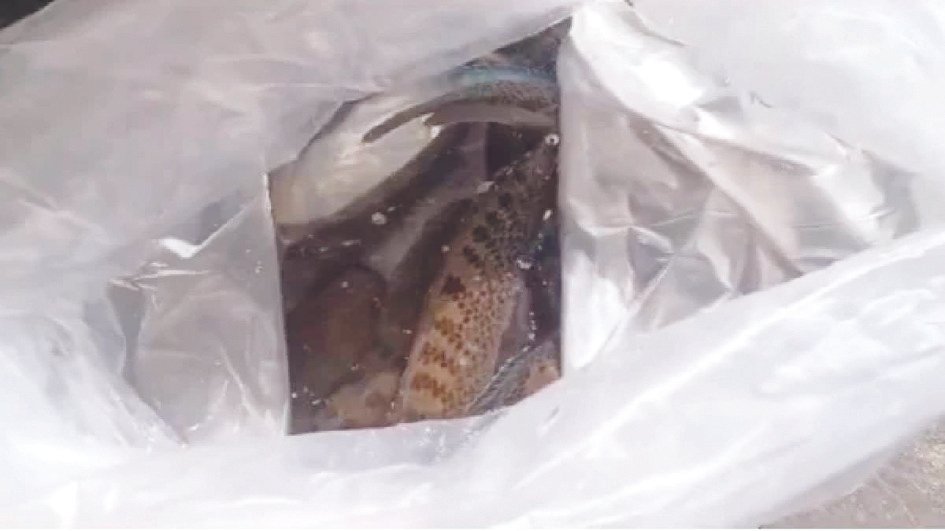HT Correspondent
GUWAHATI, Dec 21: The authorities of the Assam Forest Department seized 500 Channa Barca fishes at Dibrugarh airport on Thursday, said state chief minister Himanta Biswa Sarma.
These rare species of fish are valued at Rs 4.5 crore in the international market and is one of the biggest exotic fish seizures in recent times.
“In a successful anti-smuggling operation carried out by @assamforest- 500 Channa Barca fishes have been seized at Dibrugarh Airport.
These rare species of fish are valued at ₹4.5 crore in the international market & is one of the biggest exotic fish seizures in recent times,” the Assam chief minister Himanta Biswa Sarma wrote on micro-blogging site X.
Speaking on the same, a forest official said, “The rare Channa Barca fish was being transported to Kolkata via flight and was intercepted at Dibrugarh Airport during inspection. We have detained two individuals in connection with the smuggling and are currently questioning them.”
“On Thursday, we seized some fish at Dibrugarh Airport, which has been sent for analysis in the laboratory,” he added.
Reports suggest that Sridhan Sarkar and Jiten Sarkar, operating under the name Choudhury Enterprise in Kolkata, attempted to smuggle these exotic Channa Barca fishes via an Indigo flight. The duo purchased the fishes from various sources in rural Guijan areas of Tinsukia district, acquiring them at Rs 400 per kg.
Their intended destination was Southeast Asian countries such as Indonesia, Japan, Malaysia, and China.
Sources highlighted an ongoing trend of smuggling these fishes due to their high market demand.
“Wildlife smugglers are targeting aquatic animals due to their significant demand in the international market. They capture these rare species from water bodies or rivers and clandestinely export them to other states and countries,” revealed an insider.
It is worth mentioning that the Barca snakehead fish, scientifically known as Channa barca, is an uncommon species native to the upper Brahmaputra river basin in northeastern India and Bangladesh. Despite its rarity and ornamental appeal, this fish faces a high demand in the global market, making it vulnerable to illegal trade. Unfortunately, it lacks substantial legal protection at present.
It commonly resides in a vertical tunnel, typically measuring about one meter (3.3 ft) in length, extending down to the water table. Found predominantly in wetland areas, often near margins, this species also thrives in riverine habitats. Its adaptability to significant variations in water temperature and oxygen levels allows it to endure seasonal changes in flood levels.












